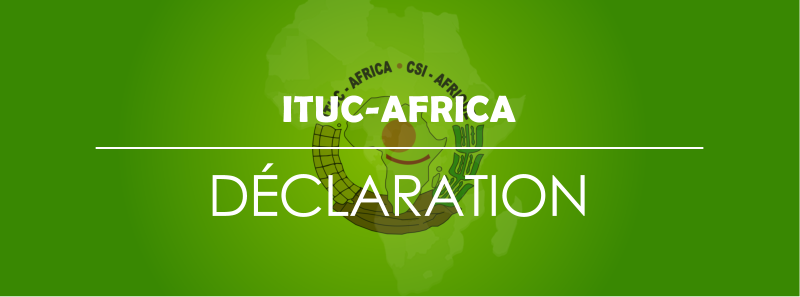
Undoubtedly, this year has been a very tough one with the COVID-19 virus that continues to mutate and cause the endless spread of infection, worsening hospitalization and death. Specifically, the COVID-19 pandemic has brutally exposed and exacerbated the fault lines between those who have access to social protection and those who do not. Hundreds of millions of workers who have lost their jobs and livelihoods have been disproportionately excluded from social support. Women, migrants and those operating in the informal economy are the worst hit by the socio-economic assaults of the pandemic.
Inequalities in access to the COVID-19 vaccine has been at the centre of debates in recent months. 70% of the vaccine doses produced in 2021 have been preempted by high-income countries. This has caused severe supply problems for low- and moderate income countries, leading to large differences in immunization coverage. Across the African continent, only 10 in 100 people have received at least one dose, and only 4 in 100 are fully immunized.
More than ever, human rights observance including economic and social rights, civil and political rights, are needed in responding to this health crisis. ITUC-Africa, therefore, calls on the World Trade Organisation (WTO) as a matter of global emergency to relax the application of Intellectual Property Rights. This will allow developing countries with production capacities to produce and disseminate COVID-19 vaccines. We ask that organised businesses put people before profits. It is also critical that vaccine doses promised to poor and developing economies are delivered.
Also, ITUC-Africa calls on workers and Africans to go take the vaccines. We urge everyone to refuse to be demobilized by the endless misinformation and disinformation materials being spread through social media and other sources. We ask that everyone trust the WHO that has certified the vaccines as safe and effective to contribute to the defeat of the virus.
To prevent fragile states from falling further into economic and social crises, we urge the International Financial Institutions (IFIs) and creditors’ economies to consider debt forgiveness for loans taken to counter the health, social and economic effects of COVID-19.
To build back better from the crisis, the commitment towards the enactment of a new social contract must not be delayed, postponed or ignored. This new social contract should prioritise and emphasise democracy as people-driven where participation is encouraged, facilitated and promoted. Freedom of association, assembly and expression, and other civil liberties, must not be tacitly, whimsically or under any guise, encumbered.
Social protection for all is another core element of the new social contract. The access and coverage of the current social protection in Africa must be improved and expanded exponentially. We shall continue to demand the cessation of Illicit Financial Flows (IFFs) from Africa and progressive taxation administration to be applied. No one must be left behind. To achieve these will require conscious, collaborative, genuine and transparent efforts.
For us as trade unions, we shall continue to engage our social partners in constructive efforts. These efforts must be anchored on the rule of law, effective governance and accountability. We will continue to rise above race, nationality, creed and language to reach out to anyone anywhere at any time that needs our support.
Best wishes for the New Year.
Kwasi Adu-Amankwah
General Secretary
